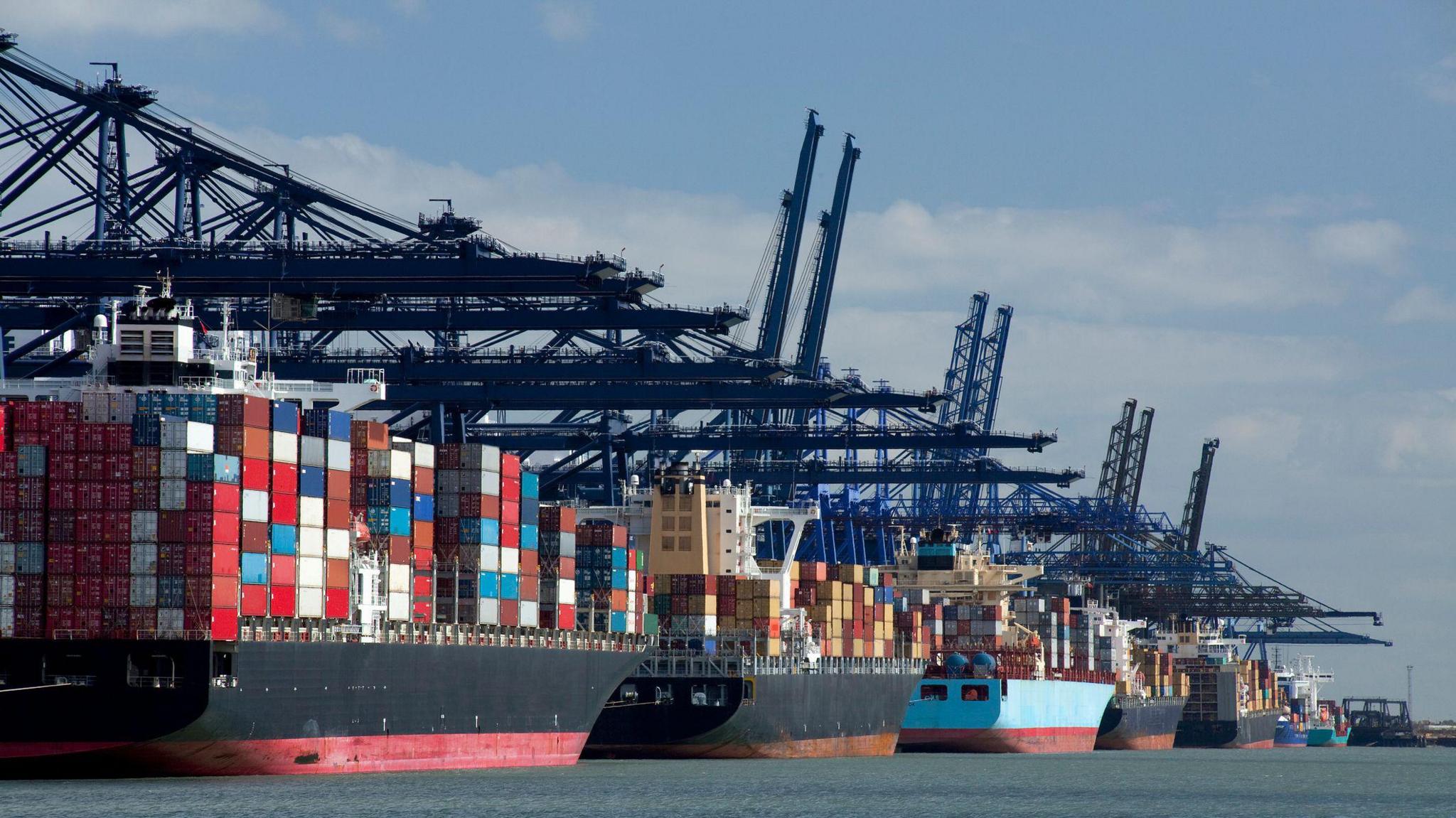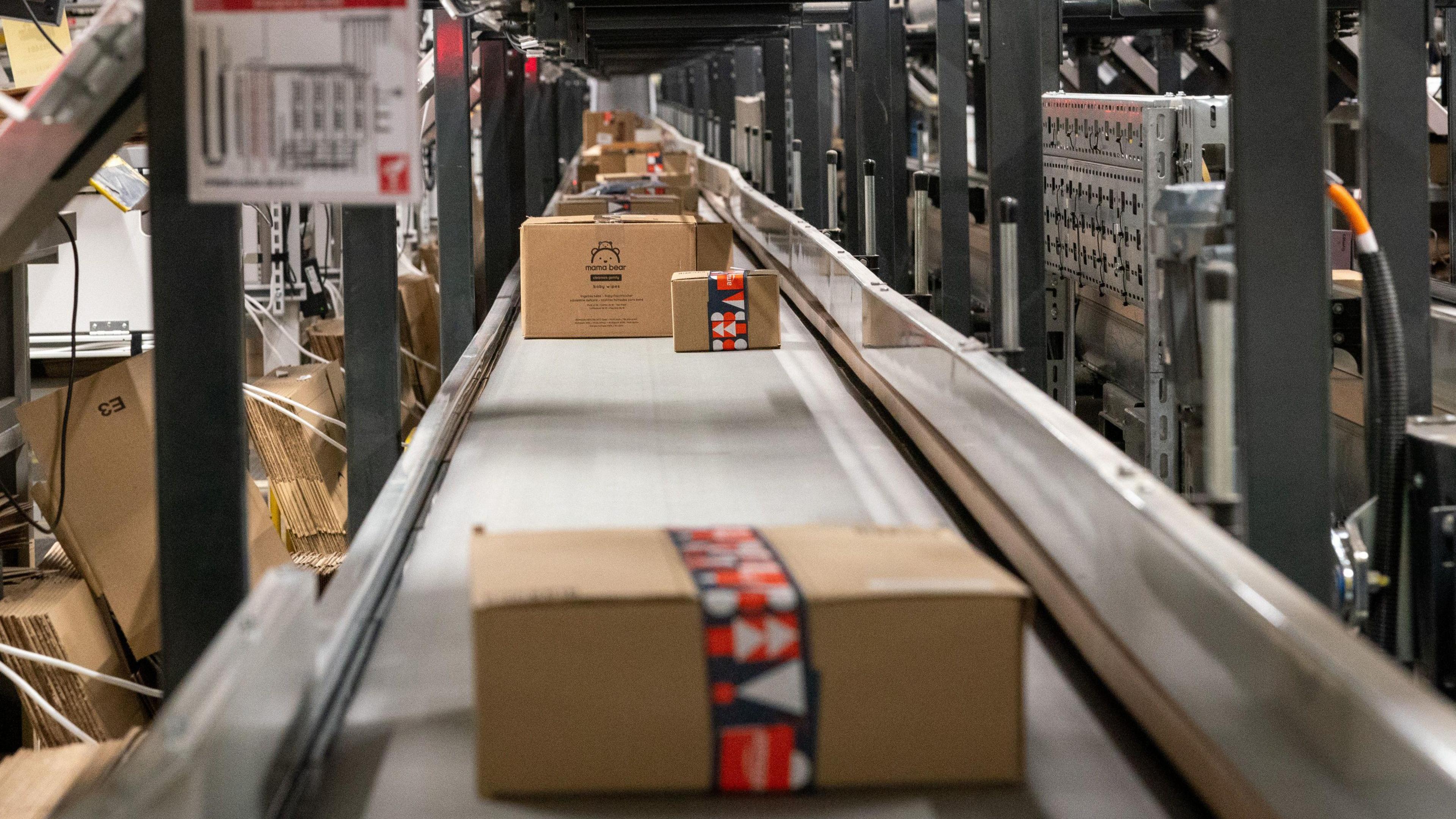Value of NI sales and exports up, new figures suggest

Sales to Great Britain rose in value by 12.4%
- Published
Northern Ireland businesses increased the value of sales and exports in all their major markets last year, official figures suggest.
However the data is not adjusted for the impact of inflation meaning that much of the increase may just reflect higher prices rather than more products being sold.
Sales to Great Britain, Northern Ireland's biggest external market, rose in value by 12.4% to £17.1bn.
Sales to the Republic of Ireland, the biggest export destination, were up in value by 17.6% to £8.7bn.
Trade figures are closely watched by politicians to assess the impact of Northern Ireland's post-Brexit deal.
That deal, known as the Windsor Framework, keeps Northern Ireland inside the EU's single market for goods.
That means trade can continue to flow freely into Ireland and the wider EU, as well as the UK internal market.
However it creates a trade border for goods flowing from Great Britain to Northern Ireland, with additional paperwork and processes required.
Therefore one impact being watched for is whether it is reducing Northern Ireland purchases from companies in Great Britain.
GB-NI goods sales
The 2022 data suggested that may have been happening as the value of goods sales from Great Britain to Northern Ireland dropped by 2.4% while the value of goods imported from other markets increased.
However that data has now been revised and suggests that Great Britain goods sales to Northern Ireland actually increased by 5.4% in 2022 and then by 13.1% in 2023.
The lack of an inflation adjustment means it is not clear what has happened to the total volume of goods.
The figures from the NI Statistics and Research Agency (Nisra) show that £97.6bn of goods and services were purchased from Northern Ireland firms in 2023, an increase in value of 12.1%.
Most of the purchases, £64.3bn worth, happened locally and increased in value by 10.3%.
Exports to the EU, excluding Ireland, were up in value by nearly 20% to £2.6bn while rest of the world exports were up in value by nearly 23% to £4.9bn.
Ulster University economist Esmond Birnie, who has been a critic of the Windsor Framework, said that with three years of data since the new arrangements were imposed there is evidence of supply chains changing.
"During 2020-23 Northern Ireland's imports of goods from the Republic grew much more rapidly than those coming from Great Britain.
"Given the scale of the growth difference it is strongly indicative of trade diversion."
On Tuesday, Stormont assembly members voted to continue with the Windsor Framework for at least another four years.
As it was not approved on a cross-community basis, the secretary of state said he would "proceed as required by the law" to commission an independent review on how the framework is operating.
Related topics
- Published10 December 2024

- Published11 December 2024

- Published1 December 2024
